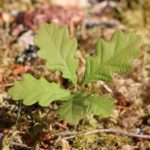
A selection of useful resources for new (and not so new) woodland owners, and for those creating woodlands, including books, courses, free trees & grants and insurance providers:
Online resources
Looking after a woodland from woodlands.co.uk
An introductory guide to woodland management, originally published by the Forestry Commission, now available on the Royal Forestry Society’s website.
How to Manage your Woodland, a collection of resources from the Forestry Commission on management techniques for healthy and resilient woodlands.
Contact details for FC local woodland officers in England, who can advise on woodland management and the support that may be available to you. Equivalent info for Scottish Forestry.
Information from the FC about felling licences, and equivalent info for Wales, and Scotland.
Managing woodland for wildlife, from the Bulworthy Project.
The Woodland Wildlife Toolkit, for advice on managing woodlands for wildlife, tailored to the location and type of your woodland.
myForest, an online mapping platform with digital tools to support the sustainable management of woodlands, produced by Sylva Foundation.
The Woodland Condition Assessment App, for monitoring the health of a woodland’s habitats and for Biodiversity Net Gain measurements.
The Ecological Site Classification tool from Forest Research, for help with selecting tree species suited to specific sites.
Forest Research Tree Species Database, information on over 60 tree species that are currently grown in British forests or could play an increasing role in the future.
Magic Map, an interactive mapping tool with information from government agencies about the natural environment, such as designated nature reserves, SSSIs and priority habitats.
TreeAlert from Forest Research, for reporting signs of tree pests & diseases.
Silvestor, an online hub for forestry and arboriculture learning resources including courses and events.
The Tree Council Guidance Hub, a collection of practical resources for growing, planting, managing and monitoring trees and treescapes across the UK.
Cumbria Woodlands: Woodland Guidance Series, a collection of 10 guides on planting and managing woodland, ideal for new owners.
Community Woodlands Association Information Notes, covering everything from management plans to working with volunteers.
WoodlandsTV, short films on all aspects of woodlands and their management.
Books & Guides
Please see the main Books page for publications covering everything from woodland management to forest folklore. Some useful free e-books and guides include:
Badgers, Beeches & Blisters: Getting started in your own wood by Julian Evans, from woodlands.co.uk
Managing your woodland for wildlife by David Blakesley and Peter Buckley, from woodlands.co.uk
Tree Species Guide for UK Agroforestry Systems from Forest Research, with information likely to be useful for anyone considering which species to plant.
A guide to planning new woodland in England, a detailed publication on relevant procedures from the Forestry Commission.
The Tree Grower’s Guide, a beginners’ guide to identifying and growing trees from seed, from The Tree Council with accompanying videos and other resources.
Your Tree Planting Companion, a guide from the Irish agriculture agency Teagasc.
A Guide to Collecting Seed from Native Trees and Shrubs in the UK produced by the Growing Diversity project.
Back issues of Living Woods magazine.
The Woodland Trust’s Wood Wise magazine.
Back issues of Woodland Heritage’s journal.
Courses
A number of organisations run excellent introductory woodland management courses, including Small Woods and the Royal Forestry Society – please see the main Courses page for more information.
Many more course providers across the UK provide training in woodland crafts, skills such as coppicing and charcoal-making, chainsaw use, bushcraft, etc. that can help you get even more out of your woodland.
Free Trees & Grant Support
If you are planning to create new woodland it is worth investigating whether you can get free saplings from charities such as the Woodland Trust, The Conservation Volunteers and Protect Earth or carbon-offsetting companies such as Carbon Footprint.
Community groups, schools, and small registered charities can apply to the Tree Council’s Branching Out Fund for grants of £250 to £2,500 to establish trees, hedgerows, and orchards. The RFS Grants for Resilient Woodlands scheme will contribute 50p per tree for planting projects of 500+ trees across the UK.
For larger projects, funding can be obtained via schemes such as the Woodland Trust’s MOREwoods, the FC’s England Woodland Creation Offer (EWCO), the Forestry Grant Scheme in Scotland, and the Woodland Creation scheme in Wales. If you’re within one of England’s Community Forests, funding and support is available via the Trees for Climate programme.
In England, grants are available from the Rural Payments Agency to produce a 10 year woodland management plan that complies with the UK Forestry Standard. This opens up further funding via Countryside Stewardship Higher Tier awards.
In England there is also funding available to deal with the effects of tree pests and diseases: Woodland Tree Health grants and the tree health pilot scheme.
Further Resources
Woodland Management Consultants and Contractors
Conservation & Wildlife Societies
Insurance
Public liability insurance is not compulsory, but if you feel more comfortable insuring against third party risks, these companies offer dedicated woodland insurance:
Gary Alexander at Beech Tree Insurance
National associations such as the NFU or the CLA, run specialist schemes for landowners.